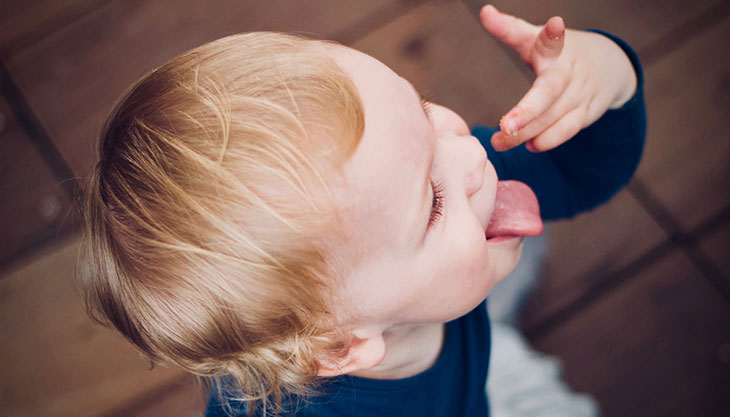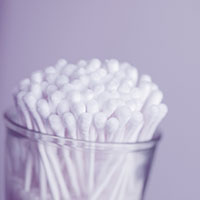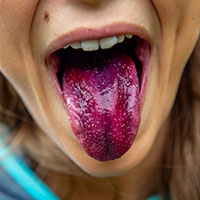Are you a Supertaster?

Are you a supertaster?
Supertasters experience bitter tastes more strongly than other people! This is because they have a higher number of taste receptors within the fungiform papillae – the big pink bumps on your tongue that contain your taste buds and enable you to taste.
This activity, you will determine whether you are a supertaster, taster or non-taster.
What you need: Bottle of natural blue food dye, cotton buds, disposable ‘mini cups’, A4 card, hole punch, scissors, damp cloth, cup or bag on each table for waste
Instruc tions:
tions:
- Everyone taking part should wash their hands.
- The person who is going to have their fungiform papillae (pink bumps) counted first needs to sit down with their elbows on the table, supporting their chin.
- Place a cotton bud into the blue food dye until it is covered. Ask the person taking part to stick their tongue out. Using the cotton bud, coat the front third of the person’s tongue with the dye.
- Place the cotton bud in a container such as a plastic bag which will then be thrown away.
- The blue dye will stain the tongue but slide off the fungiform papillae. Did you know that each bump contains three to five taste buds?
- Next, ask the person to carefully place a hole-punched card on their tongue over the blue food dye. Looking through strip of paper/card, someone in your group should count how many pink bumps they can see on the tongue inside the hole.
- Count the number of fungiform papillae twice to find an average amount. Record your results on a sheet of paper. When you have finished with the card, throw it away like you did with the cotton bud.
- Look at the chart at the end of this activity and see how your taste buds compare to your families!

Caitlin Brown is an Education Manager at the British Science Association, and has been on the Education team for three years. A graduate of University College London (UCL) and the University of Leicester, Caitlin has been working across the Education programmes, including the CREST Awards, British Science Week and the Youth Industrial Strategy Competition.




